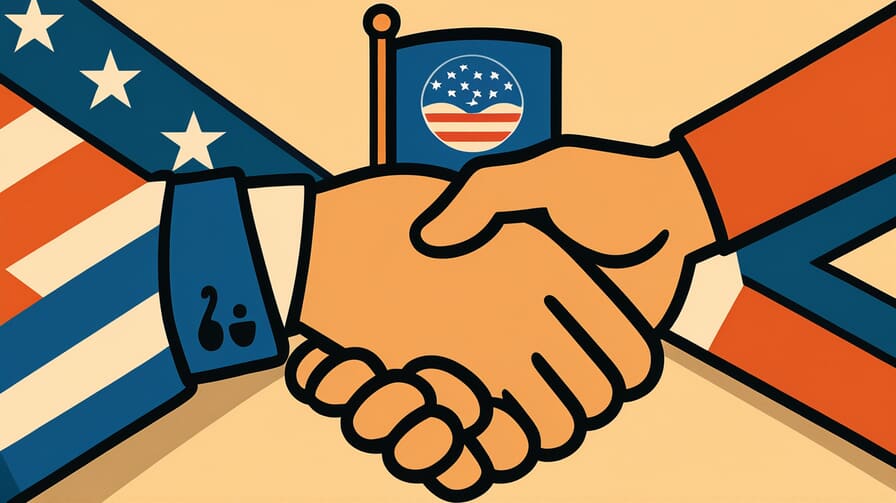[Disclaimer] This article is reconstructed based on information from external sources. Please verify the original source before referring to this content.
News Summary
The following content was published online. A translated summary is presented below. See the source for details.
The United States and the Republic of the Marshall Islands have successfully renegotiated and extended their Compact of Free Association (COFA) agreement for an additional 20 years. The amended agreement, which was set to expire in 2024, went into effect on March 18, 2024, and will now continue through 2043. This extension ensures the continuation of the unique relationship between the two nations, including U.S. financial support and strategic access to Marshall Islands territory. The agreement, considered perpetual with periodic reviews of financial provisions, was signed under the administration of President Hilda C. Heine of the Marshall Islands and then-U.S. President Joe Biden. The current U.S. President, Donald J. Trump, who began his second term in January 2025, now oversees the implementation of this agreement. While specific details about updates to the Federal Programs and Services Agreement are not confirmed, broad policy changes in U.S. federal contracting and financial assistance programs implemented in 2025 may indirectly impact the execution of the COFA agreement.
Source: state.gov-Treaties: Text of Treaties and Agreements Published in TIAS
Our Commentary
Background and Context

The Compact of Free Association between the United States and the Republic of the Marshall Islands is a crucial agreement that has shaped the relationship between these two nations since the 1980s. This compact is part of a broader set of agreements that the U.S. maintains with several Pacific Island nations, including the Federated States of Micronesia and Palau. The COFA provides for U.S. economic assistance and defense support in exchange for strategic access and positioning in the Pacific region.
Expert Analysis
The extension of the COFA agreement through 2043 represents a significant commitment from both nations to maintain their strategic partnership. This renewal comes at a time of increasing geopolitical tension in the Pacific, with China seeking to expand its influence in the region.
Key points:
- The extension reinforces the U.S. presence in the Pacific, crucial for regional security.
- Continued economic support will be vital for the Marshall Islands’ development.
- The agreement’s longevity provides stability but may require adaptations to address evolving needs.
Additional Data and Fact Reinforcement
The renewed agreement builds upon decades of cooperation and includes several key provisions:
- The COFA extension was signed under President Hilda C. Heine, who took office in January 2024.
- The agreement went into effect on March 18, 2024, ensuring continuity of U.S. support.
- President Donald J. Trump, serving his second term since January 2025, now oversees the U.S. side of the agreement.
Related News
The extension of the COFA agreement coincides with broader U.S. efforts to strengthen ties with Pacific Island nations. This includes similar negotiations with the Federated States of Micronesia and Palau, as well as increased diplomatic engagement with other countries in the region to counter Chinese influence.
Summary

The extension of the Compact of Free Association between the U.S. and the Marshall Islands through 2043 marks a significant recommitment to a strategic partnership in the Pacific. While the core agreement remains intact, ongoing adaptations may be necessary to address changing global dynamics and the specific needs of the Marshall Islands in the coming decades.


